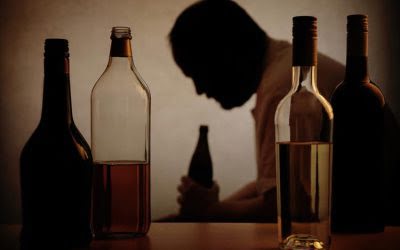Content
Try speaking to an addiction counselor or sponsor who can help you to work through cravings and a desire to use. It is worth noting that while relapse is part of recovery for some people, it can still represent a risk for people who use more potent drugs like opioids. When a person stops using substances, their tolerance decreases. Using again may be deadly as the risk of overdose is higher.
Many people reach for substances when they feel like they’re having a hard time fitting in or connecting with others in social situations. It’s important to remember that emotions don’t occur for no reason. There is always an underlying cause for these emotions. Recognizing that these emotions are opportunities for growth is an important approach. Not only will this make you less likely to relapse it will ensure that you can push through these uncomfortable feelings and become stronger as a result. In this article we’re going to discuss some of the things that you can do if you ever find yourself having a relapse.
Tips to Strengthen Recovery After a Relapse
A return trip to a residential https://ecosoberhouse.com/ is not a sign of failure – it could be just what you need to get back on track. Recovery routines and techniques help people feel comfortable in their sobriety and offer constructive outlets for excess energy. When we get too complacent or allow the ego to get too loud, we cut back on those protective layers. Soon after, the boredom, anxiety, restlessness, and other negative feelings set in, putting you at risk of relapse.

After receiving treatment, an individual can continue to engage in the above-mentioned tools and strategies that can maintain a peaceful life. Additionally, it’s recommended to utilize these methods as a way to cope with grief, anxiety, anger, or depression. From the very moment, an individual struggling with addiction decides to enter treatment after relapse, the primary goal should be to transition back to everyday life. Relapse is an extremely common factor in the recovery process. According to the National Institute on Drug Abuse , there were relapse statistics that indicated and show that about 40-60% of individuals relapse after fully completing treatment. This relapse rate is considered comparable to what was seen with physical illnesses such as high blood pressure and asthma, in which the rate of relapse was between 50-70%.
The Stages of Relapse
Mental Health for Young Adults Learn about our evidence-based approach to depression and behavioral health conditions. Mental Health For Teens Learn about our evidence-based approach to depression and behavioral health conditions. If you have relapsed, it is vital to take steps right away to get back on the path toward recovery. By identifying what caused you to relapse, you can work on avoiding these triggers in the future. A mental relapse is a mental struggle between the urge to use and a desire to remain sober.

Not that I understand football … but there is a lot to watch besides the cheerleaders. Like my children trying to score all kinds of junk food. I prefer to use the term “set back” when I get sucked back into the Black Hole — bam! — stuck inside a brain that covets relief, any form of relief, and will do just about anything to get it. After a relapse, you should reach out to your sponsor, therapist or your support system.
#5 Take Care of Yourself
However, some people think of slips as short lapses in recovery where an individual returns to drugs or alcohol. Slips generally last for a brief period of time, and the affected individual feels immediate regret or guilt for partaking in drug use. Generally, a person that has slipped up desires to return to treatment or to get back into recovery with great immediacy. Slips versus relapses tend to occur in early recovery, while relapses can occur at any time and afterany length of sobriety.
- However, holding onto your guilt will only hold you back.
- Relapse is an extremely common factor in the recovery process.
- You thought this was behind your family, and now, here you are again.
- The first step is to decide whether or not an individual struggling should go back to rehab.
Her research focuses on harm reduction approaches to people who use substances when they enter the healthcare system. I’m happy to say I’m now 18 days clean and I wont go back it took me some time to realize that I was hurting not just myself but those closest to me. This could be my husband’s story except just with alcohol .
Connect with Extra Mile Recovery
Only when you heal on every level and reveal what led to using can you gain the control you need to live a healthy life. Be honest with yourself and establish a strategy to avoid or address those triggers. The more honest you are, the more likely you’ll develop a plan to prevent a future relapse. Even if you already know your main triggers for using drugs or alcohol, a relapse is an opportunity to re-assess them and identify any new ones you may have developed. It’s also an opportunity to re-evaluate your strategies for keeping your triggers in check. Sometimes, stressful events can trigger a relapse, particularly if the addictive substance or behavior was used to cope with stress.
- A few months ago I broke my arm a used a few painkillers but this is not the relapse.
- From the model depicted above, you can see that everything relates back to the “high-risk situation” .
- They can genuinely identify with what you’re going through and know just how difficult it is to reach out for help.
- Another factor that can increase the risk of relapsing is how long an addict struggles with addiction.
- When you’re on the road to recovery, it’s important to remember that relapse is often part of the process.
However, what to do after a relapseing fixated on these feelings can prevent you from focusing on your goals and moving forward. Try to avoid speaking or writing negativity in relation to yourself and your relapse. Often, it’s your support network that notices something is wrong long before you do, and they can get you the help you need or encourage you to do so yourself, should need be.
Leave a Reply